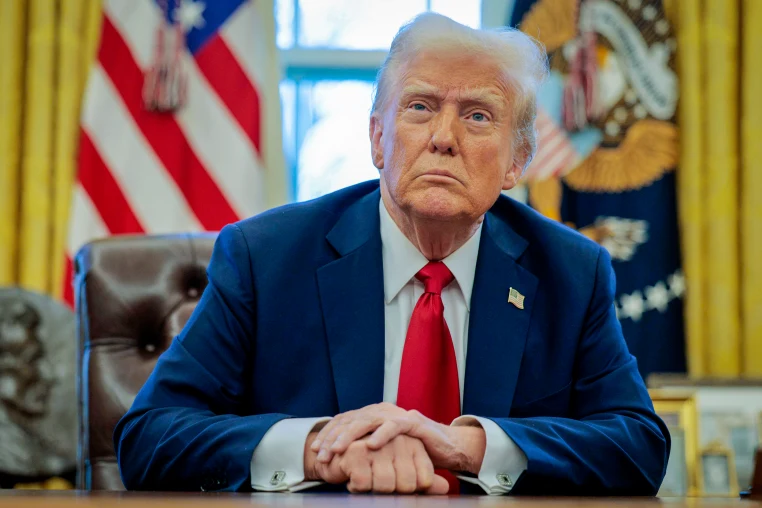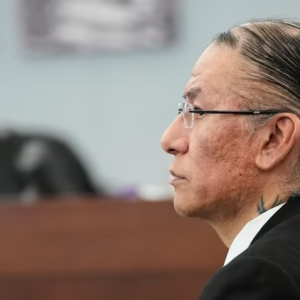In a bold statement on Truth Social, former President Donald Trump declared that he would be stopping “all future funding” to South Africa, citing alleged land confiscation and mistreatment of certain groups.
Without providing specific details, Trump claimed that South Africa is violating human rights on a massive scale, an issue he says is being ignored by the “Radical Left Media.”
Trump Calls for Investigation
Trump’s post called for a “full investigation” into the alleged actions of the South African government, though he did not specify what evidence led to his claims.
“South Africa is confiscating land, and treating certain classes of people VERY BADLY. It is a bad situation that the Radical Left Media doesn’t want to so much as mention. A massive Human Rights VIOLATION, at a minimum, is happening for all to see,” Trump wrote.
First U.S. Midair Collision in 16 Years Leaves 67 Dead
He went on to warn that the United States “won’t stand for it” and vowed to cut all future U.S. funding to South Africa until the situation is fully investigated.

White House Response Pending
At this time, it is unclear what specific policy actions Trump would take regarding funding if re-elected, or what investigations he is referring to.
Frequently Asked Questions (FAQ) on South Africa’s Expropriation Act
1. What is the Expropriation Act?
The Expropriation Act is a law in South Africa that provides a legal framework for the government to acquire property for public purposes or in the public interest. It replaces the Expropriation Act of 1975 and aims to align with the country’s constitutional principles.
2. Does the Expropriation Act apply only to land?
No, the Act applies to all forms of property, not just land. This includes movable property, intellectual property, and other assets that can be owned.
3. Under what circumstances can the government expropriate property without compensation?
The Act specifies certain conditions where it may be just and equitable for nil compensation to be paid, such as when land is not being used and the owner’s main purpose is not to develop or use it to generate income, or when the land poses a health, safety, or physical risk to persons or other property.
4. Who is responsible for implementing the Expropriation Act?
The Department of Public Works and Infrastructure is the primary agency responsible for implementing the Expropriation Act.
5. How does the Act ensure fairness in the expropriation process?
The Act adheres to Section 25 of the South African Constitution, ensuring that expropriation is conducted in a manner that is fair, lawful, and not arbitrary. It provides for procedures that include notice to the property owner, an opportunity to object, and access to the courts for dispute resolution.
6. What types of property can be expropriated under the Act?
The Act allows for the expropriation of various types of property, including land, buildings, and other movable or immovable assets, as long as the expropriation is in the public interest or for public purposes.
7. How does the Act impact existing property rights?
While the Act provides the government with the authority to expropriate property, it also includes safeguards to protect property owners’ rights. Expropriation must be for a public purpose or in the public interest, and the process must be conducted in a manner that is just and equitable.
8. What is the process for expropriation under the Act?
The process involves several steps, including:
- A notice of intention to expropriate is served to the property owner.
- The property owner is given an opportunity to object or make representations.
- If the expropriation proceeds, a notice of expropriation is issued, specifying the date of expropriation and the amount of compensation offered.
- The property owner has the right to approach the courts if there is a dispute over the expropriation or the compensation amount.
This structured process aims to ensure transparency and fairness in the expropriation proceedings.
9. How does the Act affect foreign investors?
The Act includes measures to maintain investor confidence and economic stability. It emphasizes that expropriation will be conducted in a manner that is fair, transparent, and in accordance with the law, thereby safeguarding the interests of both domestic and foreign investors.
10. What are the next steps following the enactment of the Expropriation Act?
Following the enactment of the Expropriation Act, the government will develop and implement regulations and guidelines to operationalize the law. This includes establishing procedures for expropriation, determining compensation, and ensuring that all expropriation activities are conducted in compliance with the Act and the Constitution.
For more detailed information, you can refer to the official government announcement on the Expropriation Act.






